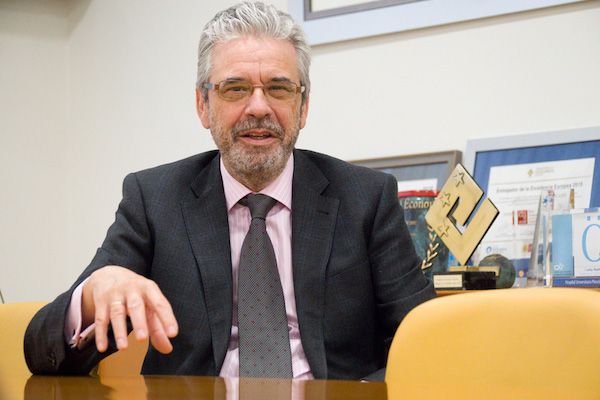
A medical doctor by profession, Carlos Zarco was elected President of the International Health Co-operative Organization at its most recent general assembly in November. He is Director-General of Fundacion Espriu, a network of health co-operatives, which provides health services to more than two million people across Spain. In an interview for IHCO members, he describes his priorities for the term, as well as his view of the state of the sector.
At the most recent assembly of the IHCO, you were elected President. What priorities have you set for your term?
Carlos Zarco: I think my main priority is to try to expand the health co-operatives belonging to IHCO. There are, at present, 14 organisations, and I think that despite the economic difficulties faced by some health co-operatives, we should be aiming to have a presence on all five continents.
Meanwhile, in terms of daily operations, we are considering the types of initiative that would be of interest to our members, while aiming to offer added value through our organisation, assisting those activities that are common to all of us.
Recently, IHCO published an international report on the contribution made by co-operatives to healthcare. What were the results and the main conclusions reached?
Carlos Zarco: The study, undertaken by EURICSE, is an excellent tool in presenting the scale and strength of our co-operative health system worldwide. To begin with, the figure acknowledged by the B20 that health co-operatives around the world provide access to healthcare for a hundred million people is in itself a striking one.
That is one of the reasons why I believe we need to continue developing the co-operative health report, for which we will be looking for funding.
Do you believe that co-operative healthcare is a genuine alternative to the development of national healthcare systems? Why?
Carlos Zarco: In some countries it unquestionably is. In Brazil, for example. In others, meanwhile, it plays a complementary role, as in the case of European countries. In any event, though, it releases public health resources, which can then be given an alternative use, either in areas with a lower level of services, or others where demand is higher.
You spent much of your healthcare career at the Lavinia Co-operative. What attracted you to this model? As a doctor, what is the difference between practising in a co-operative or in some other type of enterprise?
Carlos Zarco: I am convinced that it should be the aim of any doctor to work within the co-operative health model. A non-profit organisation that belongs to the social economy, which reinvests its entire surplus to create and maintain employment and equip its facilities with the latest technology, is the most attractive setting for doctors to develop their professional career… Without overlooking the democratic governance structure of co-operatives, which in itself is no small matter.




